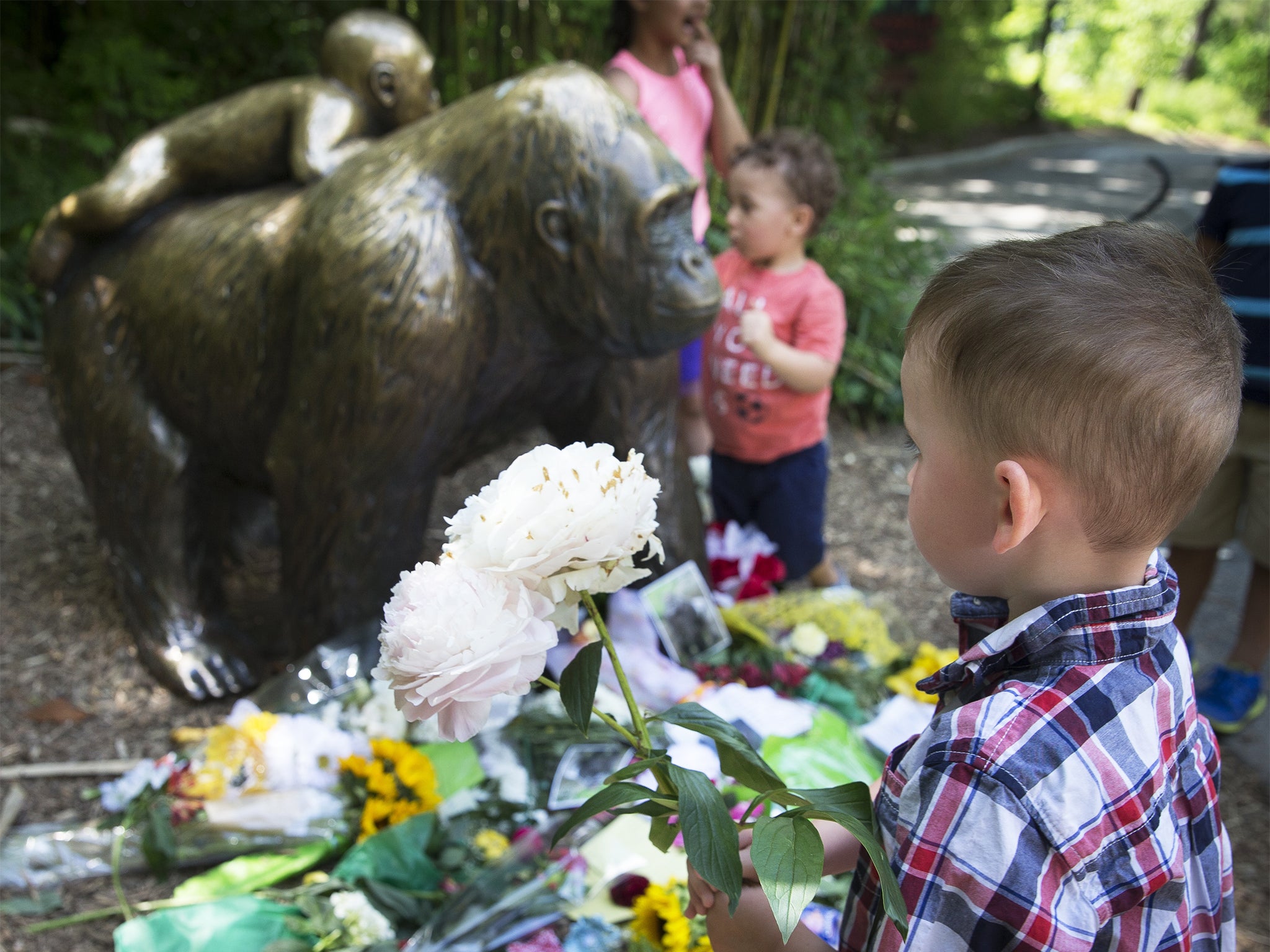Our reaction to Harambe the gorilla - and the black boy who fell into his cage - has everything to do with race
The young black boy who fell into his enclosure will grow up to be 21 times more likely to be slain than his white counterparts. If he had been 17-years-old and shot on the same day, would anyone even know his name?

The instant that a Cincinnati zoo keeper gunned down Harambe, a silver-backed gorilla, in order to save the life of a toddler who accidentally fell into his enclosure, public furore ensured. Tens of thousands railed against Cincinnati Zoo Director Thane Maynard for defending the killing of the gorilla.
However, the fallout over the incident has taken a decidedly racist turn since the public discovered that the boy and his parents are black.
The Daily Mail published a piece on the young boy’s parents that can only be described as dog-whistle racial stirring – up front is a large picture of the black couple, with long paragraphs and a headline detailing the father’s decade-old criminal convictions as well as emphasising that the couple have four children (Michelle Gregg is described as “mother-of-four” first and then, almost immediately afterwards, a woman “who has four children by father Deonne Dickerson”.)
Conveniently buried five paragraphs deep into the story is the fact that the Deonne Dickerson is currently gainfully employed at a Cincinnati industrial equipment supplier and has been for the last several years, along with social media photos that show him to be a loving and caring father.

But why mention him at all? The boy’s father doesn’t even appear to have been at the zoo on Saturday - and even if he had been there, is the article really suggesting that he had criminal intent by allowing his son to fall into the enclosure? There is no valid or ethical reason for the Mail to have brought up the father’s alleged criminal history, long before the child was born.
The story plays neatly into established racial prejudices, cementing the incredibly damaging stereotypes of black people as criminal, suspect and prone to “over-breeding”. The fact stands: no one would be talking about his criminal history if he was white.
The public reaction to Harambe’s death has been overwhelming: people are hurt and angry, calling for apologies, petitions, policy change, even for the parents of the child to somehow be held responsible (how exactly is beyond me). Social media response, especially from white Americans, was never this intense for #BlackLivesMatter. People of all ages, races and genders are lamenting the death of Harambe, but were curiously quiet about the abuses suffered by Sandra Bland, or Samuel Dubose, or Kindra Chapman, or any of the other black Americans who have recently fallen victim to police brutality in the US.
The death of an animal has brought more tears than that of hundreds of human beings, simply because those people aren’t white. 100 refugees drowned this week – but a silver-backed gorilla dominated the news.
This is not to say that we shouldn’t care about Harambe - after all, it is because of us that his kind are endangered at all - but when the shooting under legitimate circumstances of an animal in a zoo causes more upset than the deaths of people of colour, something is deeply wrong. We are taught from infancy to protect and respect animal lives, while being shown that black lives are comparatively less important. We must resist the temptation to be so misguidedly selective about the bodies we invest our compassion in.
Harambe’s death by shooting is deemed less acceptable, has sparked more furore, than the systematised, institutionally-protected deaths of Eric Garner, Michael Brown and Cincinnati’s own Paul Gaston - all of whom were also shot dead by bullets.
Harambe the Gorilla was 17-years-old when he was shot. The young black boy who fell into his enclosure will grow up to be 21 times more likely to be slain than his white counterparts. If he had been 17-years-old and shot on the same day, would anyone even know his name?
Join our commenting forum
Join thought-provoking conversations, follow other Independent readers and see their replies
Comments
Bookmark popover
Removed from bookmarks